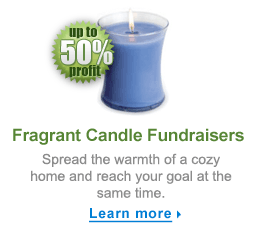 There is nothing remarkable about the single pool table inside the Cavalier Store, a bar & restaurant in Lynchburg, Virginia. It’s 3 feet by 7 feet, the standard “bar table” dimensions, and owner Wells Duffy originally found it gathering dust in a rural barn. Who knew that it would one day become a prolific moneymaking machine for charity?
There is nothing remarkable about the single pool table inside the Cavalier Store, a bar & restaurant in Lynchburg, Virginia. It’s 3 feet by 7 feet, the standard “bar table” dimensions, and owner Wells Duffy originally found it gathering dust in a rural barn. Who knew that it would one day become a prolific moneymaking machine for charity?
Each year, on the Sunday after the Super Bowl, the place is packed with onlookers for the final round of the annual Cavalier Cup Pool Classic.
“It’s my busiest day of the year, by far,” Duffy said with a smile, “and I lose money.”
That’s because beer sells for $1, when someone isn’t buying rounds for the house. And all that money Duffy doesn’t make goes to Crisis Line of Central Virginia, a local hotline.
Yet that’s only part of the story. Over the past four years, the Cavalier and its pool table have come to demonstrate how one establishment and its customers, focusing on a single charity, can truly make a difference.
“This started out as just a fun tournament for the regulars,” said Steve Harrington, a Lynchburg business owner who has coordinated the Cavalier Cup since it’s inception. “You paid an entry fee, and it was double elimination. It was also a lot of work for me, figuring out the brackets and harassing people to get their matches played, and I was starting to get burned out on it.”
About that time, Duffy happened to listen to a local radio show on which then-Crisis Line director Pat Shahrokhi was interviewed.
“I was just really impressed with her, and with the organization,” he said, “and I decided I wanted to do something for them.”
Duffy bumped the Cavalier Cup entry fee up by $10 to benefit his new favorite charity. Some of his customers began donating lump sums to the cause, and the local Budweiser distributor provided all the beer for Cavalier Cup Day, the $1 price going into the Crisis Line pot.
Finally, two years ago, Harrington added a new wrinkle to the tournament. The Cavalier Cup is highly competitive, with the last eight survivors from a field of 30 or 40 competing on the final day. Harrington decreed that whoever raised the most money for Crisis Line, even if he or she had lost earlier in the event, had the right to play the last tournament finalist for a spot on Cavalier Cup Day.
“This has two advantages,” Harrington said. “It helps raise money, and it ensures that the preliminary matches get played faster, because nobody wants to be the last finalist in and have to play in that extra match.”
Some of the tournament purists grumbled, Harrington admitted, but complaints diminished this year.
“I don’t know much about pool,” said Jeanette Wilson of Crisis Line, “but I love what they do for us.”
About five years ago, Crisis Line of Central Virginia expanded its reach to cover Southwest Virginia, as well, via long distance. The agency now gets more than 1,500 crisis calls a month — including, most recently, those related to the horrific mass shooting at Virginia Tech.
”It was great to see people donating money and having a lot of fun at the same time. And when it was all over, the Cavalier had raised $6,000 for us.”
All from one tiny pool table.







